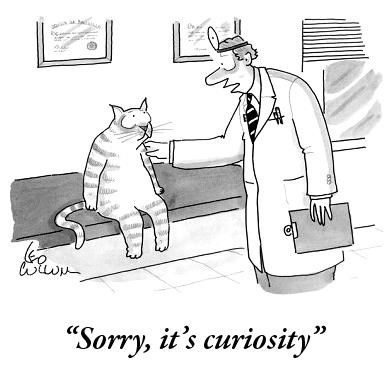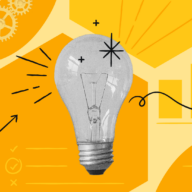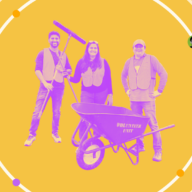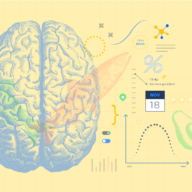I have a confession: It’s hard for me to even remember how many different productivity hacks or time management methods I’ve tried over the past year or so.
I was convinced that the Pomodoro Technique was the only way to work, so I did that for a while. Then I heard about batching your tasks, so I swore by that for a couple of months. Then I jumped on the GTD bandwagon for a short-lived stint.
Oh, and I moved from a paper to-do list to a seemingly convenient app—before eventually moving back to my trusty notebook again.
Put simply, I’ve bounced around like a rogue ping-pong ball—convinced that I was on the cusp of a productivity breakthrough.
What about you? Are you playing on the same side of the court?
First things first: Take some comfort in the fact that you definitely aren’t alone. Many of us hop around and test the waters of various systems for getting our work done.
If you’ve previously beaten yourself up over the fact that you can’t seem to commit, it’s time to put the gloves down. It turns out there are some real, science-backed reasons why you can’t seem to stick with just one way of getting things accomplished.
Reason #1: Our Brains Have a Thing for Novelty
Whether it happens consciously or not, we’re always keeping an eye out for the next best thing.
You could chalk this classic “shiny object syndrome” up to greed, restlessness, or a myriad of other things. But, here’s the truth: Our brains are programmed to seek novelty.
Why? Well, much of this desire for the new and exciting is owed to our evolution as humans.
“Homo sapiens were the only group of early hominids to emigrate over the entire world, which entailed great risk, so I think humans as a species are characterized by novelty, and intensity-seeking,” explains psychologist, Marvin Zuckerman, Ph.D., in a briefing paper about the human need for novelty authored by Brenda Patoine.
This preference for novelty “was preserved in our genetic heritage because it gave us a survival advantage; without it, we wouldn’t have explored new things or been able to invent novel solutions to the problems posed by constantly changing circumstances,” explains Ann-Christine Duhaime, M.D., in an article for Harvard Business Review.
But, if evolution isn’t quite enough to convince you, there’s also plenty of action happening in our brains that explains this attraction to novelty.
Let’s cut through all of the scientific lectures and get to the gist of it: Researchers have found that a region in the midbrain that handles how you regulate motivation and reward-processing (this region is known as the substantia nigra/ventral tegmental, if you want to ace your next trivia night) responds better to novelty than to things that are familiar to you.
These same researchers also believe that when you’re presented with something that’s new (like a new way to split up your workday or organize your to-do list), that region of your brain is activated and then releases dopamine. You can think of this as the “feel good” brain chemical—it’s the same one that’s released when you eat something delicious or listen to your favorite music, for example.
So, to put it simply, your brain just likes when you try new things—and it rewards you for doing so.
Reason #2: You Wonder If You Could Be Even Better
Does this scenario seem familiar: You’re making your way through your workday. There’s no doubt about it, you’re getting a lot done.
When quitting time rolls around, you step back to absorb everything you accomplished and you know that you should feel proud of the progress you made in the past eight hours or so. But, you’re still burdened with these nagging thoughts. “If I just change this one thing tomorrow, I bet I’ll get even more done,” you tell yourself.
It happens to the best of us. Even when things are going well, your mind starts to wonder—could you be even better? Could something else send your productivity levels skyrocketing even further?
Much of this has to do with the fact that you’re hard-wired for curiosity—particularly when an outcome is uncertain.

Image Source: Cheezburger.com
Researchers in the United States confirmed this by performing a study with different pens. In the study, 54 students were told that pens were left on a table from a previous experiment. Participants were informed that the pens were electrified (and that clicking them could lead to a shock), but that they could still click them if they wanted to.
In the first group, the pens were color-coded: A green label meant the pen was perfectly safe, while a red label guaranteed a shock. However, in the second group, all of the pens were labeled with a yellow sticker—meaning it was uncertain what would happen when the pen was clicked.
So, what happened? You guessed it. The researchers concluded that the participants were far more likely to click the pens when the outcome was uncertain. Participants clicked only one green pen and two red pens, but they clicked an average of five yellow pens.
What does this have to do with your productivity?
Well, when you think about it, you don’t really have an indisputable answer to whether or not you could get more done tomorrow. The possibility is out there, and your innate curiosity drives you to try something new and see what happens.
Some of your productivity restlessness might also be tied to something called the hedonic treadmill. Basically, you work hard to achieve something—all the while looking forward to the intense happiness it will bring.

“Unfortunately, after a brief fix we quickly slide back to our baseline, ordinary way of being and start chasing the next thing we believe will almost certainly—and finally—make us happy,” says Frank T. McAndrew in an article for The Guardian.
In short, even when you get a lot accomplished, you’re never quite satisfied. As a result, you hunt for ways that you can do even better and be even happier tomorrow.
Reason #3: You Tend to Make Your Problems More Complicated
Allow me to admit something embarrassing.
If I were to step back and take a cold, hard look at why I don’t get more done in a single day—I mean, really be honest with myself about it—the answer is pretty straightforward and simple: I need to get up earlier. Oh, and I need to stop wasting time mindlessly scrolling through Facebook wedding albums of people I’ve never met.
But, whenever I think about how I can improve and get more crossed off my to-do list tomorrow, it’s never those simple, obvious answers that spring to mind.
Instead, I convince myself that all I need to do is color-code my to-do list. Or set a timer to closely monitor my hours and activities. Or stand on my head and do deep-breathing exercises. It’s not my late mornings or constant distractions that are sabotaging my productivity—there has to be more to it than that.
I’m not alone here. We all fall victim to something called the Complexity Bias from time to time.
An article for Farnam Street provides a simple definition of what exactly this bias is: “It’s our tendency to look at something that is easy to understand, or look at it when we are in a state of confusion, and view it as having many parts that are difficult to understand.”
“As a result, when we need to solve a problem, we may ignore simple solutions—thinking ‘that will never work’—and instead favor complex ones,” writes the article’s author.
Sometimes the best solution really is the simplest. So, maybe you don’t need to re-order your to-do list or work in strategic blocks of time. Really, maybe all you need to do is stop wasting your working hours.
Our overwhelming desire to ignore that obvious explanation is exactly what encourages us to try new methods and seek out more complex (and—let’s face it—less guilt-inducing) explanations for our productivity shortcomings.
So, What’s the Best Way Forward?
On one hand, I could give you some tough love and tell you that finding a method that works well for you is reason enough to stick with it.
But, on the flip side, I know we’re usually no match for our own brains. Realistically, there might be no way to shut off these psychological factors that keep us hunting for the latest and greatest in productivity tricks.
Instead, I’ll just dish out a little bit of encouragement. In the end, there’s really nothing wrong with experimenting with your workday—provided you aren’t wasting tons of time doing so, of course.
Who knows? Your constant trial and error might be just the thing that helps you finally land on the productivity method that—despite your brain’s best efforts to say otherwise—actually sticks around for the long haul!











































